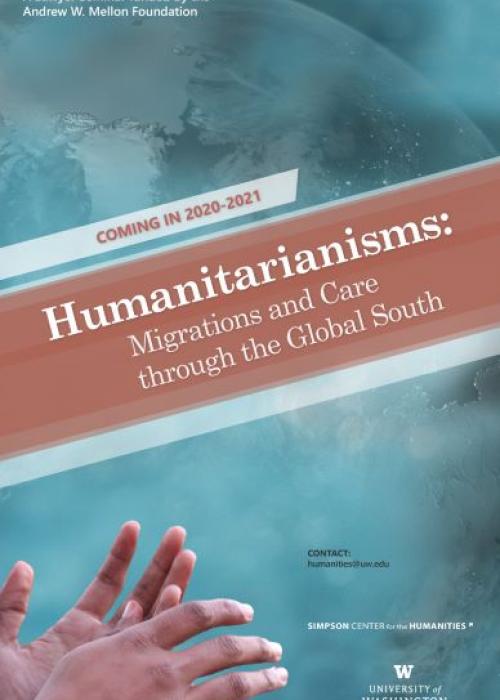- Microseminars
- Humanitarianisms Part II: Comparative Humanitarianisms
Microseminars

Humanitarianisms Part II: Comparative Humanitarianisms
Through this project, we seek to decolonize the rhetoric and understanding of humanitarianism by examining the histories of forced migration and practices of humanitarian care for forced migrants, including both ‘conventional’ and ‘humanitarian refugees’, that developed outside of Europe and North America. In order to do so, we are pursuing a comparative examination of these issues through three thematic clusters—Decentering Migration and Decolonizing Humanitarianism, Comparative Humanitarianisms, and Rethinking the Human—each of which builds on the previous cluster and thus creates threads of inquiry that will frame a public speaker series and the work of a faculty and graduate student research group.
Comparative Humanitarianisms
In this part of the Sawyer Seminar, we will ask: What are the other humanitarian logics that shape when and how communities provide care and refuge to migrants or victims of emergencies? Building on the previous concern with decentering the West from presumptive ownership of humanitarianism, this theme seeks to explore other ideologies, movements, values, or beliefs that underlie a concern with the suffering of distant others. We will engage a genealogical study of humanitarianism that begins, not with European moral sentiments from the eighteenth century, but with the traditions, philosophies, and values, such as service, hospitality, gift- giving, or mercy, which preceded and perhaps influenced such moral reasoning. A significant body of inquiry establishes these connections through examination of faith-based aid networks. Our focus here is rather than accepting prima facie that such efforts stand to the side of ‘real’ humanitarianism, these practices may indeed underlie and legitimate practices of care as they have developed and as they function as a part of daily experiences and ethical ideals of both care-givers and care-receivers.
This theme allows us to consider vernacular humanitarianisms by exploring the new global humanitarian project as one founded on hybrid formations of the management of care through practices that recognize human suffering, the labor and principles of providing care, and the transformations produced though exchanges of material and affective expressions of care. Islamic humanitarianism is one such example and an important focus for our Seminar, not only because Turkey, Jordan, Lebanon, Iran, Pakistan, and Bangladesh, the hosts that have taken in 85% of the world’s refugees, are predominantly Muslim-majority countries, but also because several of these countries are not parties to either the 1951 Convention Relating to the Status on Refugees nor the 1967 Protocol, and thus have no legal duty to take in refugees. As five of the six top host countries for forced migrants are Muslim- majority, examining how people articulate Islamic values as both a force of faith and as a source of intellectual knowledge that underwrites logics of care will be a key focus of this section on Comparative Humanitarianism. This is all the more so where the literature on humanitarianism has marked Islam as an exception to care, and as having distinct logics, such as a compulsion to charity that, for some, challenges the possibility of an authentic concern for the suffering of others. This characterization, however, misses a key component in an intellectual exploration of Islam: that it is not charity, but rather an ethical sensibility to build a more just and compassionate society, that defines Islam’s theory of care, one that emphasizes equity not equality. Because this Seminar goes beyond the study of charitable organizations in comparative humanitarian practices, our focus will be on inviting speakers who will address the ethical systems, logics, and rationalities of care that underlie everyday practices of humanitarianism as a form of caring labor across cultural and religious traditions in the Global South.
Meeting Times and Location
- January 21, 2021 | RECORDED WEBINAR | Elena Fiddian-Qasmiyeh: "Shifting the Gaze: Southern-Led Humanitarian Responses to Displacement"
- February 4, 2021 | 3:30-4:30pm PST | RECORDED WEBINAR | Amira Mittermaier, “God, Humans, and an Islamic Ethics of Care” & Sienna Craig, “Himalayan Humanitarianisms: Crisis Response from Earthquakes to Pandemics”
- February 18, 2021 | 3:30-4:30pm PST | RECORDED WEBINAR | China Scherz, “Seeking the Wounds of the Gift: Recipient Agency in Catholic Charity and Kiganda Patronage” & Basit Iqbal, “Ambivalence and Askesis in Zaatari Refugee Camp”